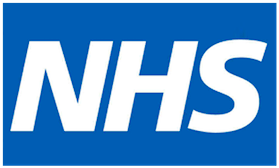
Phlebotomist
- East London
- £17.50 per hour
- Permanent
- Part-time
- A good standard of education (usually GCSEs or equivalent, especially in English, maths, and science).
- Completion of a recognised phlebotomy training course, which covers both theory (infection control, safety, anatomy) and practical skills (venepuncture technique).
- On-the-job training is often provided by hospitals, GP practices, or PCNs for new starters who complete the initial training.
- An NVQ, QCF, or Diploma in Healthcare Support/Clinical Healthcare (Level 2 or 3) can be an advantage.
- Previous experience working in a healthcare setting (e.g., healthcare assistant, support worker, medical receptionist).
- Up-to-date Basic Life Support (BLS) and infection control training.
- Phlebotomy trained
- Phlebotomy trained
- A good standard of education (usually GCSEs or equivalent, especially in English, maths, and science).
- Completion of a recognised phlebotomy training course, which covers both theory (infection control, safety, anatomy) and practical skills (venepuncture technique).
- On-the-job training is often provided by hospitals, GP practices, or PCNs for new starters who complete the initial training.
- An NVQ, QCF, or Diploma in Healthcare Support/Clinical Healthcare (Level 2 or 3) can be an advantage.
- Previous experience working in a healthcare setting (e.g., healthcare assistant, support worker, medical receptionist).
- Up-to-date Basic Life Support (BLS) and infection control training.
- A good standard of education (usually GCSEs or equivalent, especially in English, maths, and science).
- Completion of a recognised phlebotomy training course, which covers both theory (infection control, safety, anatomy) and practical skills (venepuncture technique).
- On-the-job training is often provided by hospitals, GP practices, or PCNs for new starters who complete the initial training.
- An NVQ, QCF, or Diploma in Healthcare Support/Clinical Healthcare (Level 2 or 3) can be an advantage.
- Previous experience working in a healthcare setting (e.g., healthcare assistant, support worker, medical receptionist).
- Up-to-date Basic Life Support (BLS) and infection control training.
- Phlebotomy trained
- Phlebotomy trained
- A good standard of education (usually GCSEs or equivalent, especially in English, maths, and science).
- Completion of a recognised phlebotomy training course, which covers both theory (infection control, safety, anatomy) and practical skills (venepuncture technique).
- On-the-job training is often provided by hospitals, GP practices, or PCNs for new starters who complete the initial training.
- An NVQ, QCF, or Diploma in Healthcare Support/Clinical Healthcare (Level 2 or 3) can be an advantage.
- Previous experience working in a healthcare setting (e.g., healthcare assistant, support worker, medical receptionist).
- Up-to-date Basic Life Support (BLS) and infection control training.